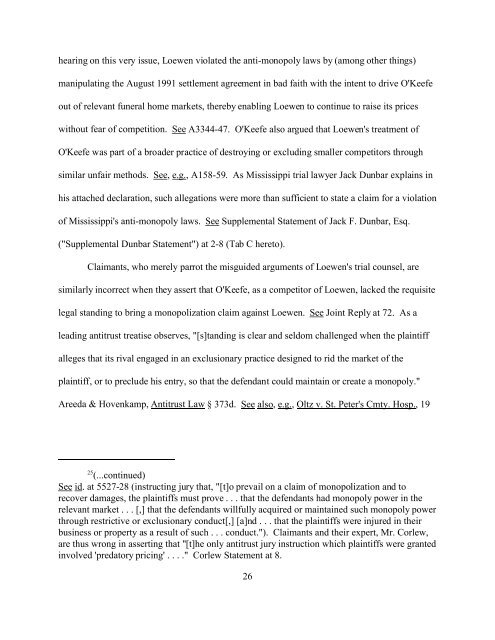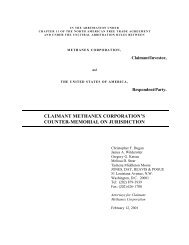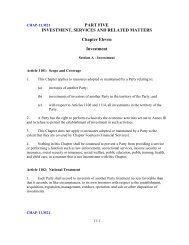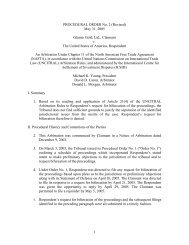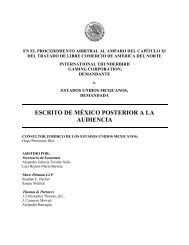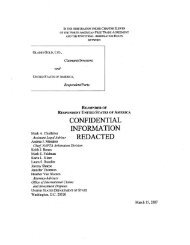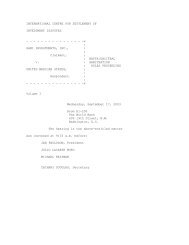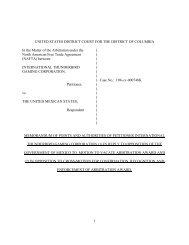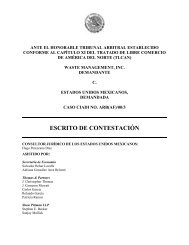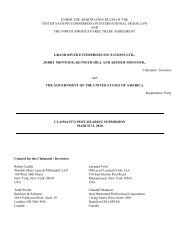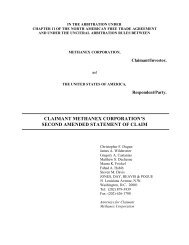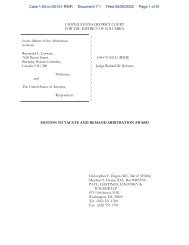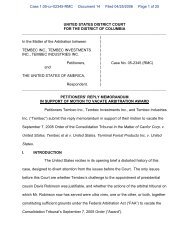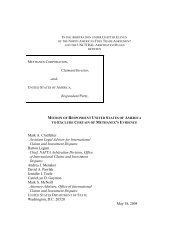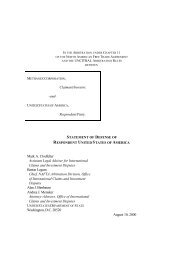THE LOEWEN GROUP, INC. and RAYMOND L. LOEWEN, v. THE ...
THE LOEWEN GROUP, INC. and RAYMOND L. LOEWEN, v. THE ...
THE LOEWEN GROUP, INC. and RAYMOND L. LOEWEN, v. THE ...
You also want an ePaper? Increase the reach of your titles
YUMPU automatically turns print PDFs into web optimized ePapers that Google loves.
hearing on this very issue, Loewen violated the anti-monopoly laws by (among other things)<br />
manipulating the August 1991 settlement agreement in bad faith with the intent to drive O'Keefe<br />
out of relevant funeral home markets, thereby enabling Loewen to continue to raise its prices<br />
without fear of competition. See A3344-47. O'Keefe also argued that Loewen's treatment of<br />
O'Keefe was part of a broader practice of destroying or excluding smaller competitors through<br />
similar unfair methods. See, e.g., A158-59. As Mississippi trial lawyer Jack Dunbar explains in<br />
his attached declaration, such allegations were more than sufficient to state a claim for a violation<br />
of Mississippi's anti-monopoly laws. See Supplemental Statement of Jack F. Dunbar, Esq.<br />
("Supplemental Dunbar Statement") at 2-8 (Tab C hereto).<br />
Claimants, who merely parrot the misguided arguments of Loewen's trial counsel, are<br />
similarly incorrect when they assert that O'Keefe, as a competitor of Loewen, lacked the requisite<br />
legal st<strong>and</strong>ing to bring a monopolization claim against Loewen. See Joint Reply at 72. As a<br />
leading antitrust treatise observes, "[s]t<strong>and</strong>ing is clear <strong>and</strong> seldom challenged when the plaintiff<br />
alleges that its rival engaged in an exclusionary practice designed to rid the market of the<br />
plaintiff, or to preclude his entry, so that the defendant could maintain or create a monopoly."<br />
Areeda & Hovenkamp, Antitrust Law § 373d. See also, e.g., Oltz v. St. Peter's Cmty. Hosp., 19<br />
25 (...continued)<br />
See id. at 5527-28 (instructing jury that, "[t]o prevail on a claim of monopolization <strong>and</strong> to<br />
recover damages, the plaintiffs must prove . . . that the defendants had monopoly power in the<br />
relevant market . . . [,] that the defendants willfully acquired or maintained such monopoly power<br />
through restrictive or exclusionary conduct[,] [a]nd . . . that the plaintiffs were injured in their<br />
business or property as a result of such . . . conduct."). Claimants <strong>and</strong> their expert, Mr. Corlew,<br />
are thus wrong in asserting that "[t]he only antitrust jury instruction which plaintiffs were granted<br />
involved 'predatory pricing' . . . ." Corlew Statement at 8.<br />
26


